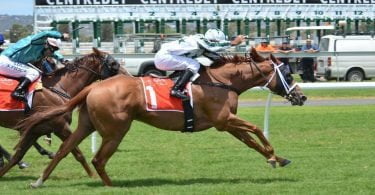No one recognises him.
No one recognises him. They sip their coffees and read their newspapers, but an Olympic champion once described by former teammate Sir Steve Redgrave as ‘the most competitive man I ever knew’ solicits very little attention in a thronged Teddington cafe.
Perhaps it’s not their thing. Perhaps this arbitrary collection of South West Londoners would fail to discern Britain’s oldest surviving rowing champion – which they evidently do – just as much as they would identify the latest X-Factor castoff.
Curiously, Martin Cross, part of the gold-winning Los Angeles ‘84 coxed four team, appears impervious to this poverty of recognition as we negotiate the coiled staircase in search of quieter quarters. He takes each step with measured precision, markedly in an upright manner, to assuage a sore back sustained during a recent bout of rowing. Rowing, aged 54, with Olympic champions.
Although he was half that age and in his peak at the ‘84 Olympics, with Britain promoted into favouritism by dint of the Easter Bloc boycott. Either a German or Soviet Union unit had collared gold in five of the last six coxed four events, including the last three, but Martin insists their truancy did not detract from their success.
‘We went to East Germany that season and raced them, which was very unusual in those days because of the Iron Curtain. We borrowed an East German boat, completely different to ours, and we had a really good go against them, but they beat us by just over a second.
‘Then they came to Lucerne; the big race before the Olympics. They led us to about 1200m of a 2000m race but then we started to push through and got in front with about 400m to go and just rode away from them. We broke the world record and beat them by about three seconds.
‘We had already beaten the Soviets, so it would have been a great race, but who knows what the result would have been.’
As it was, the Americans propelled themselves into an early lead as their cross-Atlantic rivals, unable to execute a similarly pre-conceived strategy, yielded the advantage. But it quickly emerged that the crowd favourites were not ready to relinquish their superiority, so when the race reached a critical, decision-making junction, elder statesman Martin usurped authority, delegating orders that fell outside the ambit of Redgrave and co.
‘We were hugely aware that we were a length down with 1000m to go. They rode a blinder and I think we suffered from a lot of pressure. So with about 250metres to go, the race plan went out of the window. From then on I called the race. ‘I’ve got to do something different here’ I thought.
‘Everything we threw at them had no impact, until finally they began to crack right in the very last part of the race. You knew the last three or four strokes ‘That’s it now, they can’t come through. If we just keep this, that’s it’.’
Although sentient of their courageous accomplishment, the final surge had left him and Redgrave motionless, paralyzed by pain and fatigue.
‘The initial feeling was nothing. It was just such a relief. I was devoid of anything so I just slumped, and I think Steve Redgrave was the same too. When you’re announced as winners and they call you up, you’re extraordinarily tired and exhausted, but you get energy from somewhere. It’s an iconic moment. You’ve seen it on telly before and you’re aware that you’re suddenly going to go through it.
‘You think ‘Oh wow, this is very special indeed’.’
Indeed, Martin and Redgrave harmonized with Andy Holmes and Richard Budgett to end 36 years of rowing hurt.
‘Richard Burnell, the Sunday Times correspondent, was there, and he was the last person to have won that medal,’ recalls Martin. At the London 1948 Games, Burnell and Bert Bushnell powered ahead of Denmark and Uruguay in the double skulls to triumph in the Thames.
But the trophy cabinet collected dust rather than shiny new gold medals thereafter. Even Argentinean Alberto Demiddi had medalled in the 1968 Mexico City men’s single skulls as barren Britain fired a blank across the board.
‘The results in the ’68 Games were embarrassing. Other countries had more enlightened squad selection policies,’ propounds Martin, who only latterly fully grasped their water-breaking achievement.
For Martin, though, the power of it lies in its legacy. Since ’84, Britain has returned home from every Olympics with a rowing gold to declare at customs.
He says he is immensely proud of being a founding father of Team GB’s much-revered rowing legacy, and facilitated the development of the Searle Brothers (Jonny and Gregory in Barcelona 1992), Tim Foster (one of Redgrave’s last allies in Sydney 2000) and Tom James, who registered his maiden Olympic gold in 2008.
‘He was somebody whose school I went to speak at when he was around 16. I showed my Olympic medal around and he was really excited and inspired by that.
‘I was commentating on him winning the race in Beijing, and he was 24 – 24 years after I had won my Olympic gold. It makes you feel proud.’ But Martin and the triumvirate of Holmes, Budgett, and Redgrave soon severed ties.
‘The notion that we would carry on was never there. We were there to do a job. Steve and I could have ended up rowing together. But it was difficult because we were both on the same stroke side. It wasn’t something I was looking for.
‘We were both great rowers, and I might have had more success if I had pushed to row with him. But there we go.’
So four years after guiding the coxless four to bronze in the ’80 Moscow Games, Martin had helped greenhorn Redgrave claim the first of his five gold rings. Yet even podium-topping companions, all smiles in an oasis of success and serenity amid golden conquest, have to wade through choppy waters like the rest of us.
‘Although we didn’t always get on, there was nothing but deep respect for each other’s abilities. We spent a year rowing together in 1982 when he was 19, but he didn’t like the way I rowed. Steven thought I didn’t have a natural rhythm and flow, and I thought he wasn’t as tough as he could have been.
‘But when he was in a rowing boat, he was sensational. You always thought he was destined for greatness. Yet I didn’t want to row with him in ‘84 because he wanted to do a single race, and I thought ‘Sod off, you can go and do your single’.
‘However, the coach put him in the boat for one race. I went to the back and he came in at stroke, and the difference was sensational. It was like, ‘Oh shit, this is amazing’.
‘So dynamic, so powerful, it was clear he was an exceptional talent in that crew, and we were all exceptionally talented.
‘Nobody would have anticipated his longevity. I mean, five Olympic golds in an endurance event, it is almost unbelievable to think anyone can do it.’
Did they learn from one another?
‘It’s a good question,’ Britain’s second-most capped international muses.
‘If I look at what I learnt from Steven the answer would be not as much as I could have done, because when you see somebody as competition, you are trying to beat them and differentiate yourself from them, as opposed to thinking ‘What can I learn from this person?’ Although I think everyone takes from Steven the focus, the dedication – the Redgrave mindset.
‘Steve had an ability to beat most people before they got to the start line. He could row less than 100% and still win. But you need to understand that when I rowed, Steve Redgrave wasn’t five Olympic gold-medallist, Steve Redgrave was some bloke that was really good.
‘It pissed me off sometimes. I was a bloke who was really good, with medals. It wasn’t like, ‘Oh, he’s fantastic’. It was, ‘I can beat him’. But he was very hard to beat, and I hardly ever beat him.’
But one thing Martin did eventually conquer was depression, suffered during the 90s as he struggled to come terms with his feats within the sport. Perhaps being blighted by malicious slights and self-doubt at the cradle of his training could be a reason why.
In confessing he was never self-aware of possessing Olympic-winning qualities, he said: ‘When I started in Year 9, I was crap, bottom of the group. But I had enough focus and determination to carry on.
‘But I never wanted to win Olympic gold; I didn’t want to be Olympic champion. I wanted the bronze medal. The golds were won by the East Germans or the Soviets – they weren’t won by the British.
‘That was one of the differences between myself and Steve or Andy. They weren’t hung up by generations of these fantastic Iron Curtain athletes who took drugs and won races.
‘So I didn’t see myself as Olympic champion. I’m sure Steven did, and Andy too.
‘It probably took me about 15 or 20 years to reconcile myself the whole idea because I created this notion of two-tiered Olympic champions. There were people who deserved to win, like Steve, Seb Coe or Daley Thompson. They are proper Olympic champions.
‘And me – I’m just like, second-rate. Obviously, I’m just normal. I’m not as good as these other people so my Olympic medal is not worth as much, which is just a load of bollocks, but it is just the way my mind works.
‘Me winning bronze in ’80, people like Steve Redgrave come along and look at me and think ‘Well he just won a bronze, and he’s just little’. Redgrave is about four inches taller than me and about 10kilos heavier. Redgrave must have thought ‘Well if he’s done that, why can’t I win gold?’
‘You should concentrate on teaching’. That was my headmaster in 1982.’
You would be wrong to believe that a future Olympic champion being told that he was not good enough by his Hampton School employer, where he taught and still teaches History and Politics, was a sui generis.
‘I have had lots of people in sport saying ‘You’re not good’, ‘You’ve got no feel’, ‘What you’re doing is not good enough’, ‘You should give up’. I was really desperate to succeed. It was personal. There was always a sense of wanting to prove myself. Self-belief, dedication and resilience ultimately got me to that stage though.
‘Racehorses are bred to race. I internalised the motivation and it becomes you and that is what you do. It doesn’t matter what people say. I still row now. That defines who I am and what I do. You could say I live to row.
‘People say you must have given this sacrifice and given up so much, and you look at them, because you do what you’re meant to do. Getting up to row in the morning is not a sacrifice. Rowing is great. Why wouldn’t you do it?’
Retirement in the mid-90s was enforced by the stopwatch, rather than Martin himself calling time on his illustrious career.
‘If your identity is that of an international rower then you need motivation to let go of that, to push it away, and that was very difficult for me. In 1995 I had a back injury and hadn’t been able to row for months, and I tried to make the cox pair and they said ‘No, you’re not quick enough.’ And that was it. That was my last year.
‘So I never retired. I just died by the sword, really.’
Perhaps that is the best way to go.








